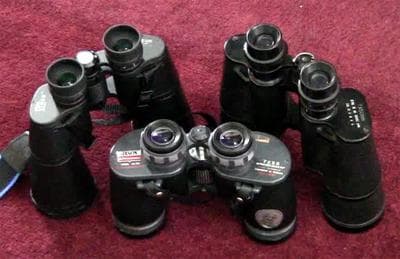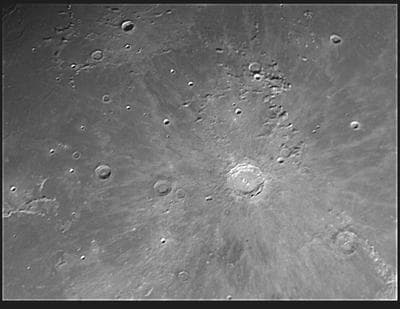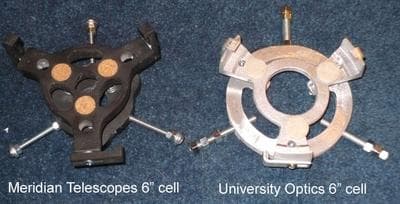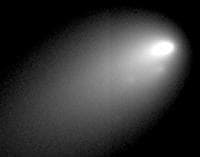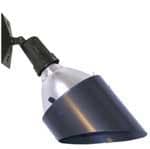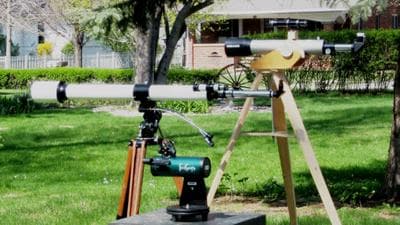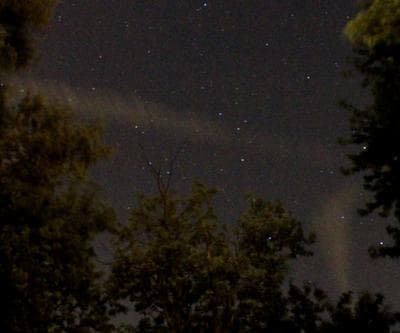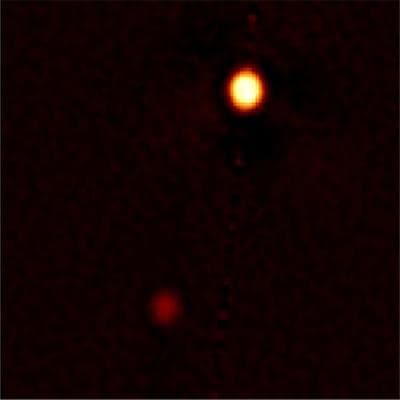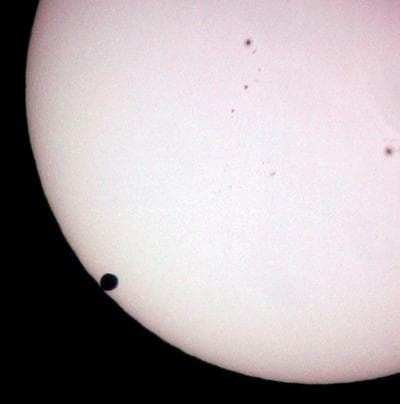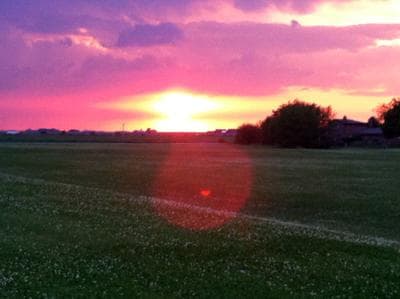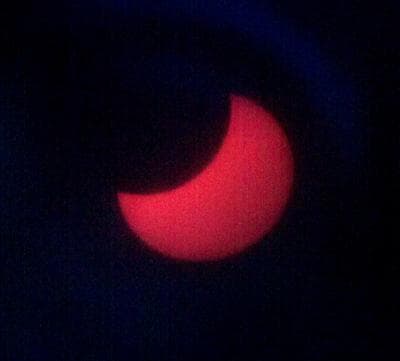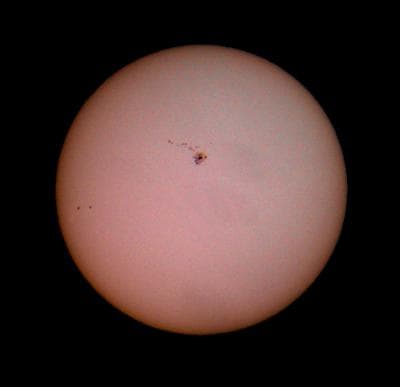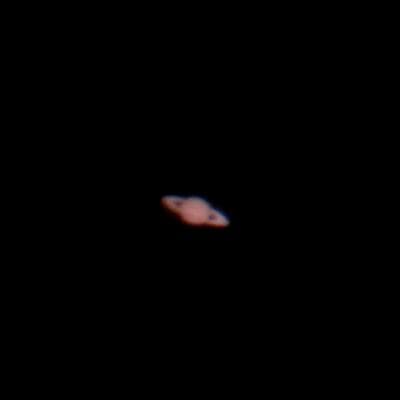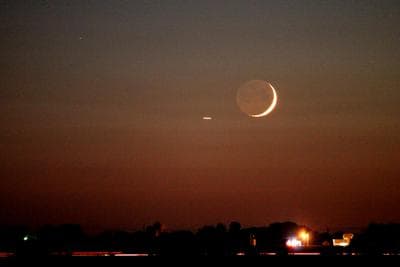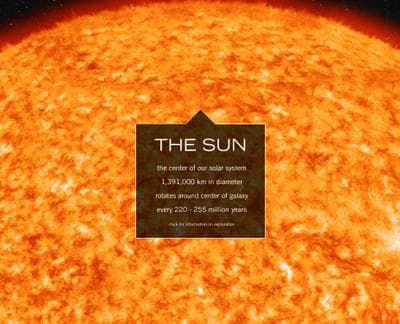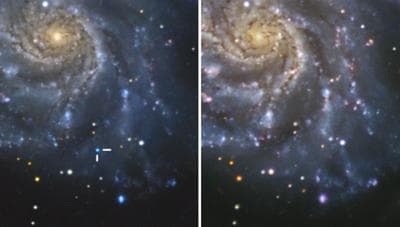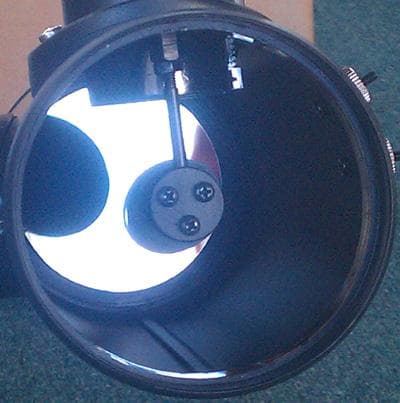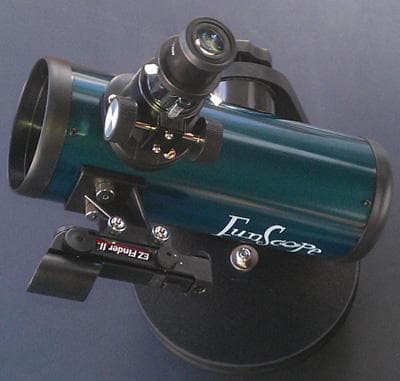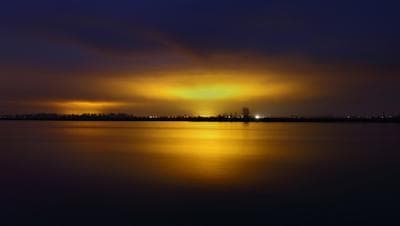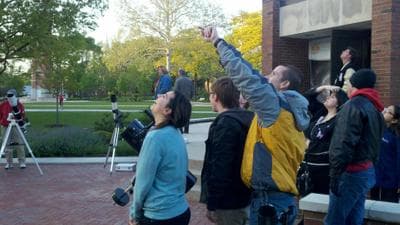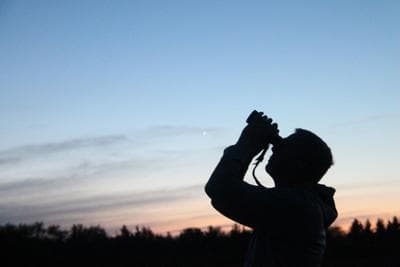
Eyes on the Sky
with David Fuller
with David Fuller
Astronomy Articles from 2012
Choosing binoculars for astronomy
David Fuller — 2012-12-04Binoculars for astronomy are best when they provide a low magnification, wide field of view. In addition to providing a substantial exit pupil of light leaving the eyepiece, when chosen at a weight of two pounds or less with fully coated surfaces, they can provide substantially more light reaching the user's eyes and assist in observing wide fields of much fainter objects than the naked eye can see.Crazy, insane, I-shouldn't-do-that magnification
David Fuller — 2012-11-28This is NOT the thing one is supposed to do with a telescope. 40x to 50x are often the practical maximum magnifications, usually because of the unsteady atmosphere overhead. But the Moon is bright. The image doesn't get dim all that quickly. Plus, this was now a premium mirror - a .975 Strehl ratio. And it was fully-cooled, as it had been sitting outside for plenty of time to be at ambient temperature. So I said to myself, "Why not?"Mirror cells: University Optics and Meridian Telescopes
David Fuller — 2012-11-08Comparing and contrasting the benefits and features of a University Optics 6" mirror cell with a Meridian Telescopes mirror cell. What is good and bad about each one?Hergenrother: Going to pieces (literally)
David Fuller — 2012-11-05Comet Hergenrother is splitting apart," said Rachel Stevenson from NASA's Jet Propulsion Laboratory in Pasadena, California. "Using the National Optical Astronomy Observatory's Gemini North Telescope on top of Mauna Kea, Hawaii, we have resolved that the nucleus of the comet has separated into at least four distinct piecesRetrofitting, rather than replacing
David Fuller — 2012-11-04I got my December issue of Astronomy Magazine the other day. I was pleasantly surprised to read that it wasn't just talking about the problem and lamenting the loss of dark skies, it was actually offering practical tips on light pollution reduction, like how to talk to neighbors about the problem - tactfully, since "light at night" can be an emotional issue related to fear / security. It also addressed how to retrofit existing lighting, so one need not buy all new lights to improve those already in place.First Time Telescope Buyer's Guide
David Fuller — 2012-11-01A question often asked on beginner forums or on reddit astronomy boards is, "What telescope should I get?" or "What is the best beginner telescope?" There's a helpful - if older - article from 2010 by Sky and Telescope that covers some (at the time) sub-$100 telescopes, all of which are more than that now by $10 to $30. That's a good place to start. But sometimes the budget is more (or less!). So what to do from there? There are SO many choice today, it's hard to know what to get. Here are some recommendations I think may help.Light. Sleep. (Not necessarily in that order.)
David Fuller — 2012-10-15When deprived of artificial light and exposed to natural light/dark cycles, people sleep BETTER. We flood our nighttime environment with lighting - and I don't just mean outside. TV's, computers, light bulbs - sometimes on ALL night. And yet don't stop to consider that maybe we need to turn the lights off - like our ancestors did.Aurora! And I actually saw them from the Chicago area
David Fuller — 2012-07-16I was only 60% convinced I had seen an actual aurora, though my daughter, ever optimist, was 75% convinced (despite not having much of a passion for astronomy - okay, she doesn't have any at all, but she was excited about last night for some reason). When I got home, my conviction percentage dropped a bit as the area of brightening I saw was actually a brighter section of the Milky Way according to Stellarium. Fortunately, I got a couple responses to my post on CloudyNights.PLUTO! Yes, the planet!
David Fuller — 2012-06-24I had made a video about how to find Pluto, and why this time was a good opportunity to try and spot the little pla... uhhh - dwarf planet. Two weeks ago some of my friends who are part of the informal Chicago Astronomer group indicated this last weekend might be a good time to try it. I put it on my calendar, and was not disappointed!The Venus Transit: A recap
David Fuller — 2012-06-06The 2012 Venus Transit turned out to be a perfect day for not only capturing the transit occurring visually via different means, but also sharing it with a LOT of interested local people.More eclipse photos
David Fuller — 2012-05-21Some more photos from the May 20, 2012 solar eclipse - including a long distance one all the way from Japan!Solar Eclipse Photos!
David Fuller — 2012-05-20How does one see - much less photograph - a solar eclipse when it is cloudy? Bring the right telescope of course - the "cloud clearing" one I own. The photos turned out okay too.Early astro - errr... solarphotography?
David Fuller — 2012-05-10My technique is to use my finger to brace the camera over the eyepiece by placing said finger between the phone and eyepiece itself - just propping it up there. The phone initially thinks it's looking at darkness, so when I do finally manage to locate the Sun with the camera, the exposure gets 'blown out" for a few seconds until it can compensate for the brighter image. Then, I carefully control my breathing - sometimes I feel like a sniper - taking my shots by tapping the phone lightly to take the picture when the screen has a sharp image that isn't vibrating too much due to my finger being between the scope/cameraSaturn at its finest
David Fuller — 2012-05-03Afocal photography used to be "Hold a film camera to the eyepiece of your telescope and hope you get something good." With cell phone cameras, we can actually see what we are capturing right then and there - though, it does need to be VERY steady skies and a lot of magnification to get anything good.Earthshine is the coolest thing
David Fuller — 2012-04-23Light. It either bounces around, is absorbed, or - as in most cases - there's a little bit of both happening. So what exactly has to occur for us to see the non-sunlit side of the Moon despite there not being any direct sunlight on it?OMG SPACE
David Fuller — 2012-04-06Space is big. REALLY big. In fact, it is a bit difficult to actually imagine just how big it is. And then I found a site where.... well, OMG. SPACE. It's big. REALLY big.Are Type 1a supernovas picky eaters?
David Fuller — 2012-03-20Scientists are getting closer to understanding what may cause Type 1a supernovae to occur. The supernova in M101 provides some clues.Orion Funscope 76 review (Part 2)
David Fuller — 2012-03-17What can you see in a little Orion Funscope, with a 76mm primary mirror? Actually... quite a lot. This review discuss objects found and observed with this little - yet surprisingly powerful - tabletop telescope.Orion Funscope 76 review (Part 1)
David Fuller — 2012-03-16A review of the small tabletop telescope by Orion, the Funscope. Far more capable and worthy of consideration compared to the "department store" type telescopes of yesteryear. This review covers not only what makes this a worthy option, but also the downsides so you'll know the whole story.The flight of night from sight
David Fuller — 2012-03-08Why do we light up the night sky above us, when the what we really need is light on the ground to see? Lighting up the night sky makes us all poorer in the form of throwing money up into the sky. That's not smart.Let's build a better astro community
David Fuller — 2012-02-20While the astronomy community may be small, many people have telescopes. If we help them discover more of what they can see, we can better address the issue of light pollution too.And in the beginning
David Fuller — 2012-02-11Why does Eyes on the Sky exist? Assisting amateur astronomers with what they can find and see in the night sky, and working to reduce light pollution.
